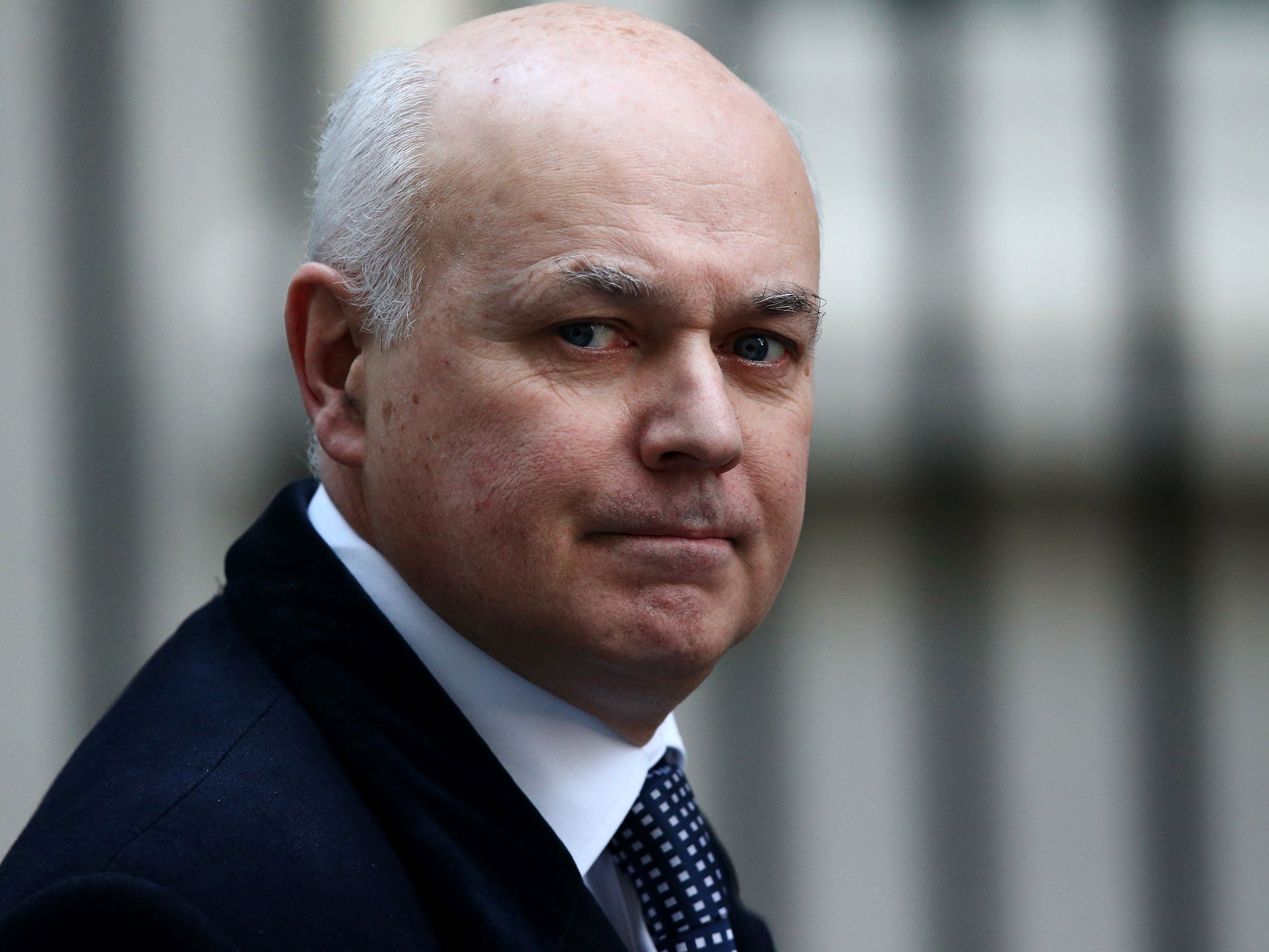Iain Duncan Smith’s flagship Universal Credit roll-out is actually slowing
The scheme has been plagued by problems and delays since its launch

The take-up rate of the Government’s flagship Universal Credit welfare reform is actually slowing, the latest official figures suggest.
The benefits programme, which has been plagued by delays and criticised by successive spending watchdogs, was reset last year and is still being implemented four years after its initial launch.
Now statistics released by the Department for Work and Pensions show that far from gathering steam, the rate of new claims for Universal Credit has actually fallen 11 per cent since peak take-up in the summer.
New claims fells from their July peak of 6,841 a week to 6,055 a week in the latest stats, which refer to mid-September.
125,877 people in total are now claiming the benefit as of 10 September 2015, and the Government needs a sharp increase in its take-up rate to meet its own expectations of 500,000 people by next May.
The take-up rate is actually going in the opposite direction, however.
The Government missed its aim for 100,000 people to be moved on to the benefit’s caseload by May of this year, with a repeat miss next year looking increasingly likely.
The DWP’s statistics says the fall in claims “may be due to seasonal effects” of the summer – though the effect notably did not occur last summer and has continued into September, with a fall recorded in the latest week.
In 2013 the DWP was forced to write off £34m of IT work on the project after problems and serious criticism, from the National Audit Office, who criticised its “weak management, ineffective control and poor governance”.
The whole roll-out was originally due to be complete by 2015/16 but has now shifted back to 2020.
Workers at the Universal Credit Service Centres in Bolton and Glasgow walked out on strike in July of this year over what the PCS trade union described as “a lack of resources, an oppressive management culture, inadequate training, hard to reach targets and staff shortages”.
Some elements of the scheme have even been cut by the Chancellor George Osborne before they have even been implemented – notably freezing the “work allowances” that were trumpeted as an incentive for people to work.
Another key plank, the payment of housing benefit directly to tenants rather than landlords, has also been quietly amended – with some problem tenants now expected to receive an exemption. The DWP says it has always been clear that alternative payment arragements would be put in place.
A DWP Spokesman said: “Universal Credit is successfully rolling out across the country and today’s figures show that there has been a 70 per cent increase in Universal Credit caseload over the last four months. Already jobseekers on the new benefit are finding work faster and staying in jobs for longer.
“The number of people making new benefit claims each month will depend on the number of jobseekers there are. With employment at a record high, and more than 700,000 vacancies available at any one time, it is to be expected that this number will fluctuate.”
Subscribe to Independent Premium to bookmark this article
Want to bookmark your favourite articles and stories to read or reference later? Start your Independent Premium subscription today.

Join our commenting forum
Join thought-provoking conversations, follow other Independent readers and see their replies